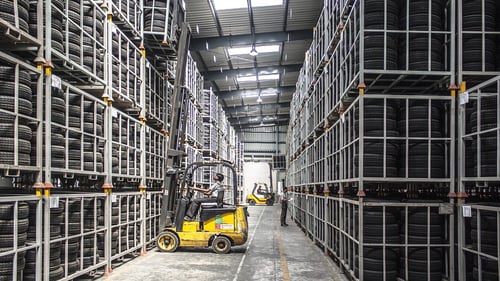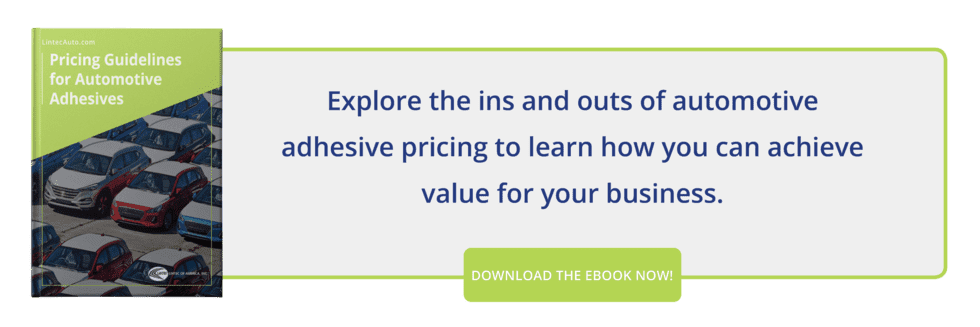Shipping valuable car components will always come with inherent risks, but a preventative approach can make a world of difference.
Freight and cargo damage incidents do happen from time to time, for reasons varying from poor pallet quality to incorrect loading procedures to unfortunate product leakage—and more. But this doesn’t even account for threats to your products before and after the shipment. There are plenty of potential sources of damage during packaging, unpackaging, and inventory storage that are equally worthy of worry.
Alloy wheel protection films—such as the residue-free polyethylene protection films produced by LINTEC Automotive (a division of LINTEC of America)—were formulated to mitigate these threats. With peel-away protective films, you can safeguard your wheels from unpredictable, incidental damage from the moment the film is applied until the vehicle is ready to be sold on the lot.
With the right protective wheel films, these four threats to your aluminum wheel shipments can become a thing of the past:
1. Rain and Wet Warehouse Conditions
Aluminum doesn’t rust like steel, but that doesn’t mean it’s safe from corrosion and oxidation. There may be a leak in the warehouse or freight truck’s roof. A nearby automotive liquid container may accidentally spill onto cardboard boxes and soak through. Wet conditions are a common and often unpredictable environmental hazard of shipping.
Moisture, chemicals, and high or low pH exposure (from contaminants or leaking liquids) can oxidize aluminum or damage the finish. Furthermore, sensitive brake elements (like disks and rotors) on aluminum front wheels may also be at risk of corrosion. Wheel films provide a moisture seal that solves these common design problems and keeps harmful substances away from your materials.
2. Smudges and Oil Stains From Handling
Wheels can become soiled during assembly, packaging, unboxing, or installation if handled without clean gloves. These unsold products should never suffer unintentional, easily preventable damage from contact directly on the lustrous surface before the moment of sale.
3. Accidental Drops While Moving Inventory
Impacts and drops are a threat to virtually any item during shipping. For this reason, many automakers commonly employ protective films—such as on flooring materials. Your wheel shipment will have to contend with stacking, jostling, and other rough forces that could damage the packaging and scratch or ding the attractive outer finish, even after they’ve been boxed. An unfortunate slice with a utility knife during unboxing should strike the film, not the wheel, for example.
Automotive protective films provide a barrier against abrasions and other unforeseen hazards that arise while moving inventory.
4. Damage to Your Reputation
Perhaps the biggest threat to your aluminum wheel shipment is an impact on your reputation. Whether damage during shipping was the fault of the shipping company, mother nature, or an accident, the source won’t be remembered as much as the inconvenience of the resulting problem. Delighted customers are critical to the success of a business, so losing customer satisfaction incurs real costs.
It’s difficult to pin down exactly how many cascading side effects come from damaged shipping packages—complaints, waste, delays sustainability impact, etc.—but suffice to say they’re significant.
Protect your reputation with preventative measures that reduce losses due to mishaps in packaging, shipping, and assembly. Protective films are a low-cost safety measure for your aluminum wheel shipments with the potential to preserve both your products and the valuable business relationships that surround them.

